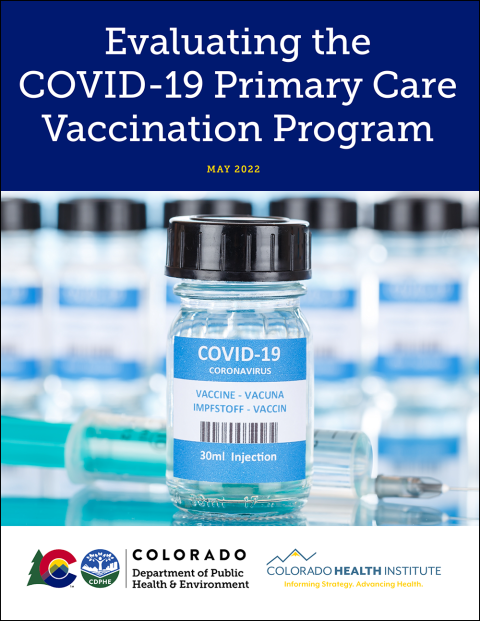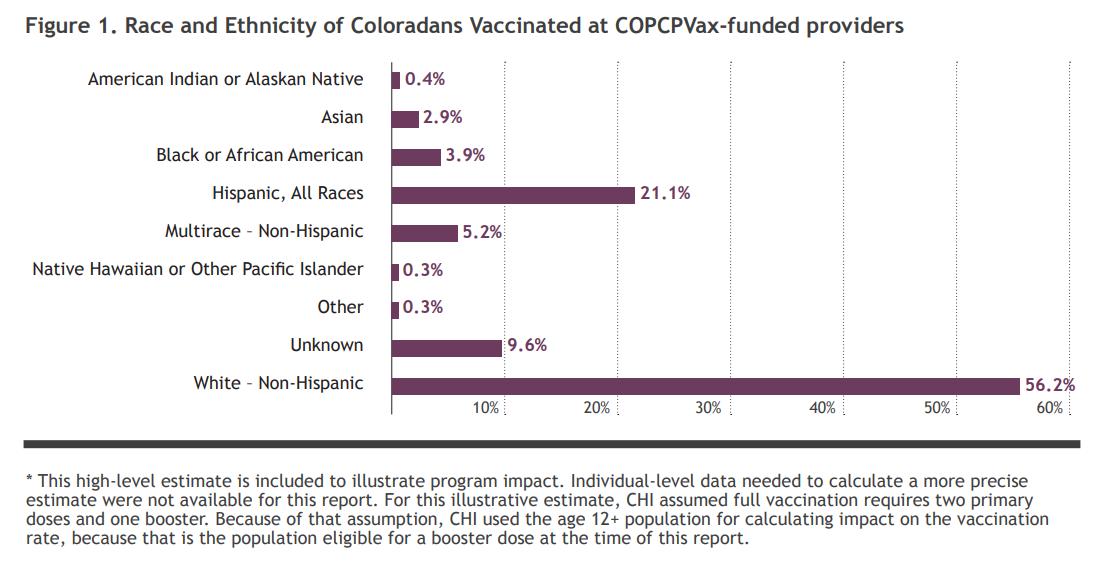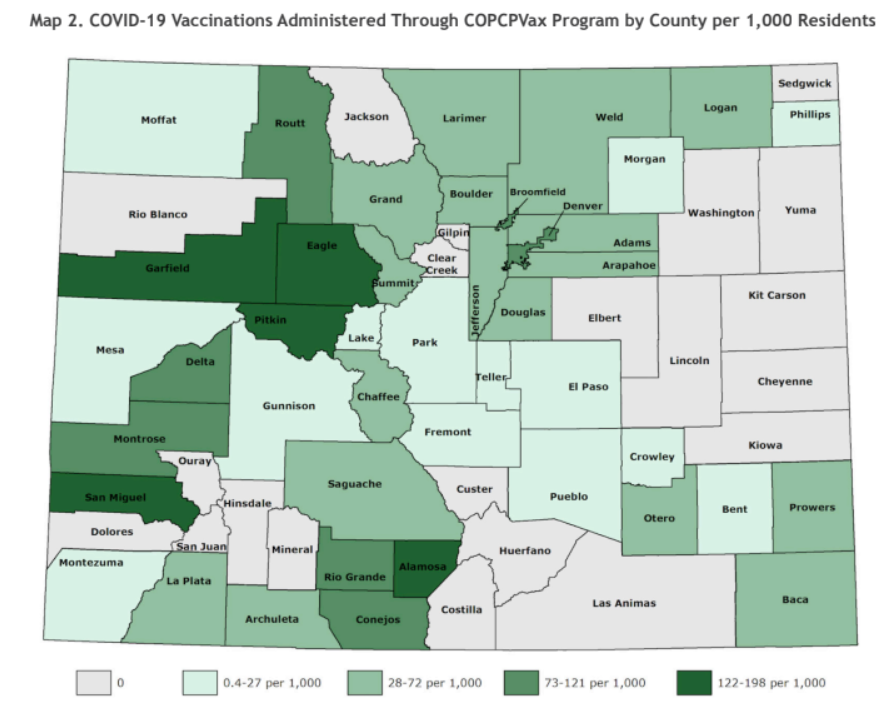Impact on Colorado's COVID-19 Vaccine Infrastructure
100+ more primary care clinics are now providing the COVID-19 vaccine.
Thanks to funding and technical support from the COPCPVax program, 121 new primary care clinics enrolled as COVID-19 vaccine providers. This means more than 100 new clinics are now able to provide the vaccine to their patients in the primary care setting, either as part of a regular visit or a vaccination-specific appointment. Many of these clinics are also working to vaccinate their communities through stand-alone vaccination events.
Twenty-two clinics in rural counties enrolled as COVID-19 vaccine providers with support from the COPCPVax program (see Map 1). Of the 121 clinics participating in the COPCPVax program that were newly enrolled as COVID-19 vaccinators, 31 are located outside the Front Range.
Forty-one of the 121 newly enrolled clinics were already enrolled in the Vaccines for Children (VFC) program, which provides vaccines at no cost for children who are uninsured, underinsured, on Medicaid or Medicaid eligible, and/or Alaska Native/American Indian. In total, 211 of the 374 participating clinics were enrolled in the VFC program prior to joining the COPCPVax program.
Primary care clinics are now better equipped to acquire, store, and administer the COVID-19 vaccine and support and train their staff.
The COVID-19 pandemic has strained the health care system, and many practices have experienced severe staffing shortages and turnover. The COPCPVax program provided clinics with funding to support personnel involved in patient outreach and engagement, scheduling, marketing, ordering, administration, and reporting related to the COVID-19 vaccine. Funding also supported staff training and development related to COVID-19 vaccine administration and reporting. Clinics also used funding to staff COVID-19 vaccine clinics outside of regular business hours to increase access to and availability of the vaccine.
With COPCPVax funding, clinical sites invested in vaccine storage and infrastructure to support vaccine administration. Some sites used the funding for minor building modifications, such as rewiring a room to accommodate a vaccine storage unit. Many clinical sites purchased vaccine storage equipment and technology needed to acquire, administer, and report on the COVID-19 vaccine. These investments in infrastructure, capacity, and training set up these practices to continue to administer COVID-19 vaccinations and other routine immunizations in the future.
COPCPVax-funded clinics administered more than 270,000 vaccines.
Clinics participating in the COPCPVax program administered 272,566 COVID-19 vaccine doses from September 2, 2021 through January 31, 2022. That’s the equivalent of first, second, and booster doses for nearly 91,000 Coloradans (90,855). COPCPVax clinics delivered nearly one of every 10 immunizations delivered in the state during the grant period. Over 14,500 COVID-19 vaccine doses were provided by the 121 newly enrolled providers receiving funding from the COPCPVax program. That investment will continue to pay dividends in the future as those providers continue to vaccinate their communities.
A majority of Coloradans receiving a vaccination from a COPCPVax-funded provider (56%) were white, non-Hispanic individuals. That is slightly lower than the white, non-Hispanic population as a percentage of the total state population (65%, according to CDPHE data). More than three in 10 (34%) individuals receiving a vaccination through the program were either non-white or Hispanic. Ten percent were of unknown race or ethnicity (see Figure 1).
CHI worked with program advisors, CDPHE, and the Colorado Department of Health Care Policy & Financing (HCPF) to identify and enroll pediatric clinics in the program. More than 100 (110) pediatric clinics participated in the program, 33 of which were not already enrolled as COVID-19 vaccinators prior to participating in the COPCPVax program. Fifteen percent of Coloradans vaccinated by a participating clinic were under age 10.





